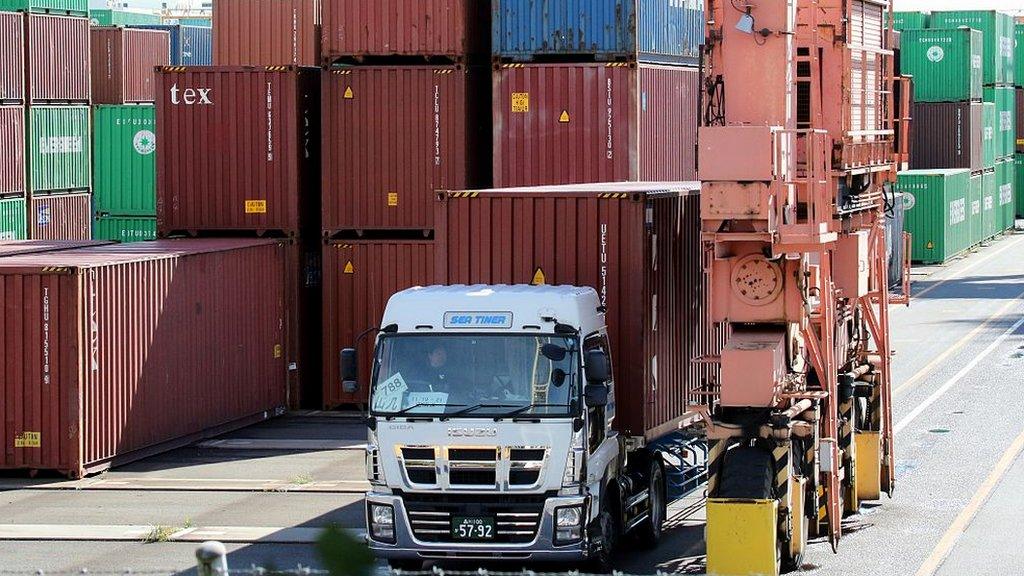US says falling trade with China could be positive
- Published
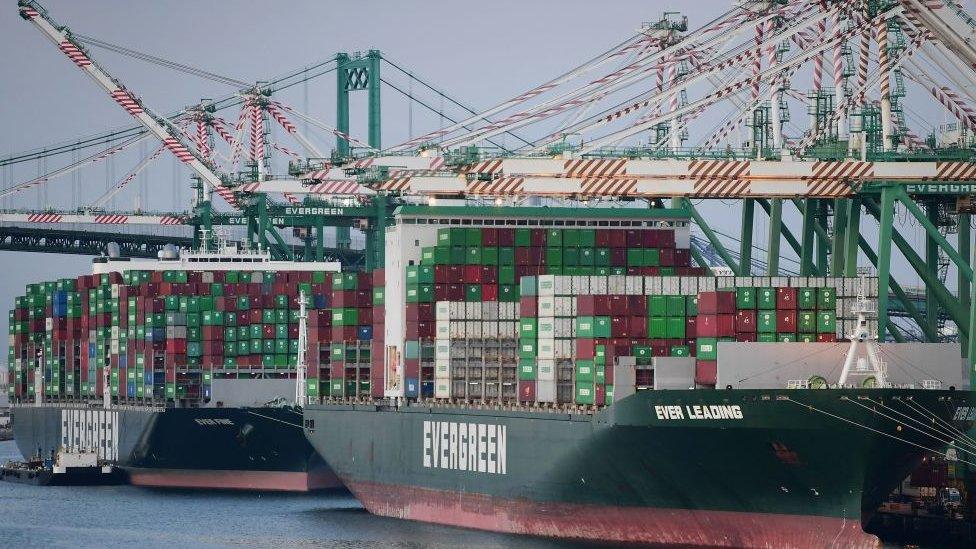
The steep drop in trade with China could be a positive development, the United States' top trade official has told the BBC.
Katherine Tai said it "isn't necessarily negative. It could be a positive indication of diversification on both sides."
The amount of goods the world's two biggest economies sold to each other fell 17% last year.
It comes amid deepening divisions in the global economy.
Those differences were exposed again with the US announcing an investigation in to what it said was a potential national security risk from cars made in China, citing fears that tech-connected cars could collect personal data or be controlled remotely.
Chinese car companies have been expanding their presence in other parts of the world but have virtually no presence in the US, where they already face import duties of 25%.
The White House described its action as "unprecedented" and a fair response to Chinese policies which impose restrictions on foreign car companies.
Last year the amount of goods the US bought from China fell just over 20% to $427bn, with a 4% fall the other way to just under $148bn (£117bn).
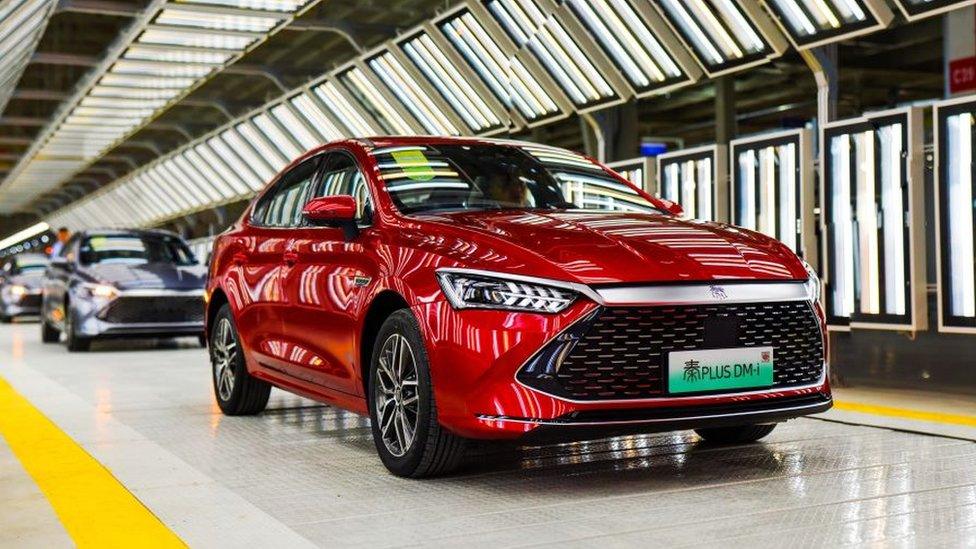
Chinese carmakers such as BYD have struggled in the US amid trade tensions
Consumer electronics, machinery and clothing have been some of the biggest sellers in recent years.
Trade between the two hit a record high in 2022 but has fallen as many big US companies move production outside of China and feel the impact of tariffs.
Amid growing tensions between the two countries, trade expert William Reinsch of the Centre for Strategic and International Studies says: "Last year's decline in U.S.-China trade does appear to be a sign that both economies are moving away from each other"
"But if you look at the increased imports from Southeast Asia into the United States, it appears that a good part of that increase is coming from Chinese companies that have either moved production or are simply moving their products through third countries in order to circumvent tariffs or other restrictions."
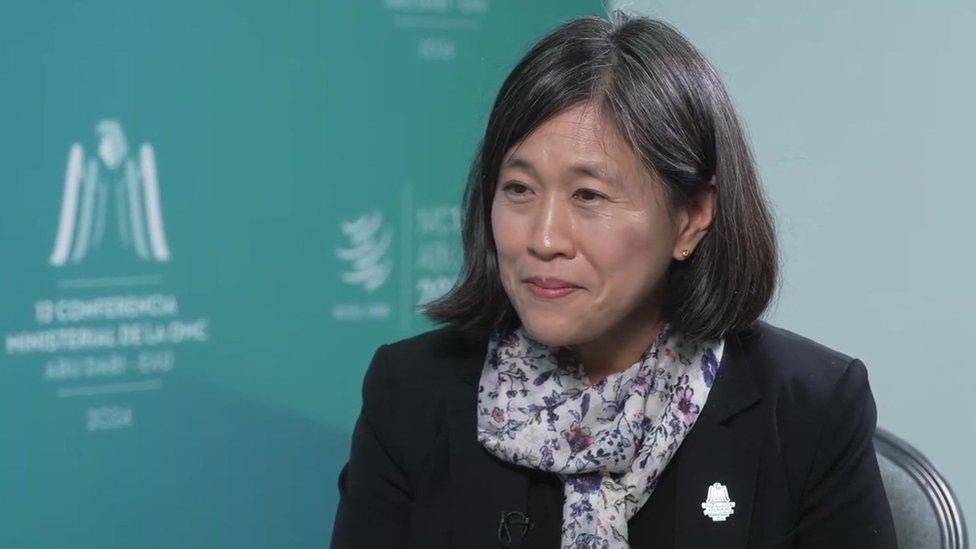
Trade relations with China have been a top concern for US Trade Representative Katherine Tai
Ambassador Tai said: "China's economic development is creating many competitive pressures around the world".
She was speaking at the World Trade Organisation's (WTO) major meeting in Abu Dhabi and said the institution was "showing its age" and needed to be reformed so that it could do more to address those pressures.
The gathering of the world's trade ministers has been extended into a fifth day as they seek to reach agreement on updating the rules of global trade.
However, reaching any agreement is complex because it requires consensus from all 166 members.
Fishing subsidies, extending a ban on e-commerce tariffs and reform of the WTO itself are amongst the issues being discussed.
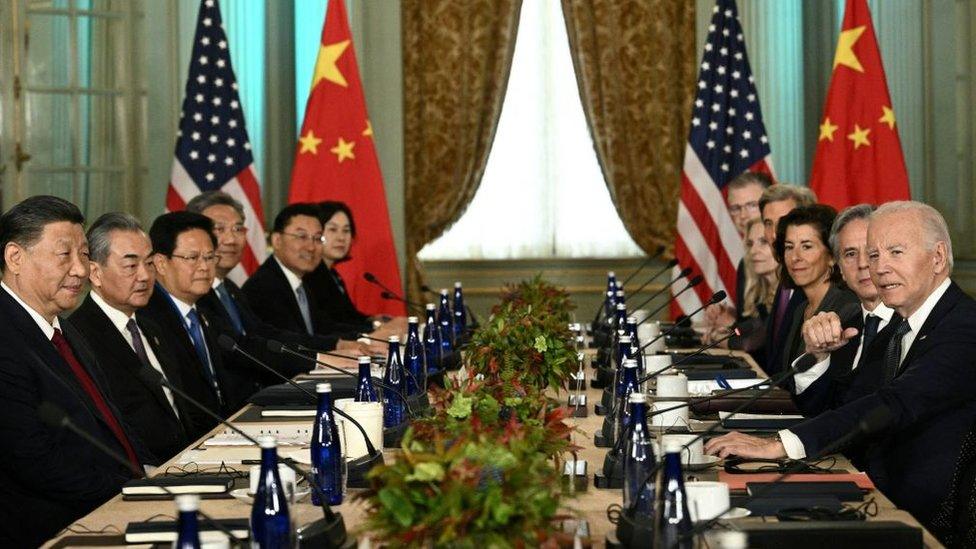
President Biden and President Xi struggled to make progress on trade when they met in California in November
The US has been leading those calls for WTO reform in recent years.
Under Donald Trump's presidency it disabled the dispute resolution body by blocking the appointment of new judges, arguing that the system and its rulings favoured China at the expense of the US.
That blockade and call for reform have continued under Joe Biden's presidency despite his team revealing very little of the changes they want publicly.
Ambassador Tai said that "the WTO is here to serve the interests of all of its members, large and small."
Trade relations between the world's two biggest economies have worsened under the Biden administration with both the US and China imposing new barriers on trade, including restrictions on computer chip exports which have recently suffered shortages.
Liu Pengyu, a spokesperson for the Chinese Embassy in Washington, told the BBC: "Upholding sound and steady growth of China-US economic and trade ties serves the fundamental interests of both countries and our peoples and is conducive to global economic growth."
Mr Liu added that the two sides should work together on global challenges and hoped the US would move "in the same direction".
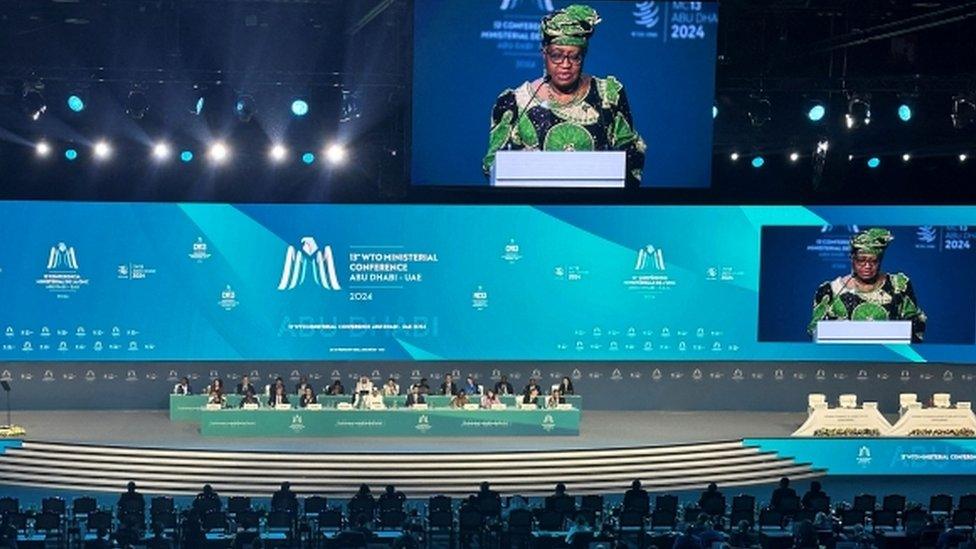
Director-General Ngozi Okonjo-Iweala is trying to bridge differences on global trade at a World Trade Organization in Abu Dhabi
In the build up to the meeting in Abu Dhabi, the Director-General of the World Trade Organization, Dr Ngozi Okonjo-Iweala told the BBC that the body was trying to help the US and China solve some of their differences.
Both countries are trying to grow their economic influence in parts of Africa and Asia as they try to secure access to natural resources and build resilience into supply chains.
It has led to growing concerns that the world is splitting in to two trading blocs and Dr Okonjo-Iweala warned that "we should be very careful, because if this continues, it could do real damage to the world economy".
A WTO study found such a division could cost the world economy 5% of its GDP. At a time when growth is struggling because of higher interest rates and inflation, she says, "that is huge".
- Published5 February 2024
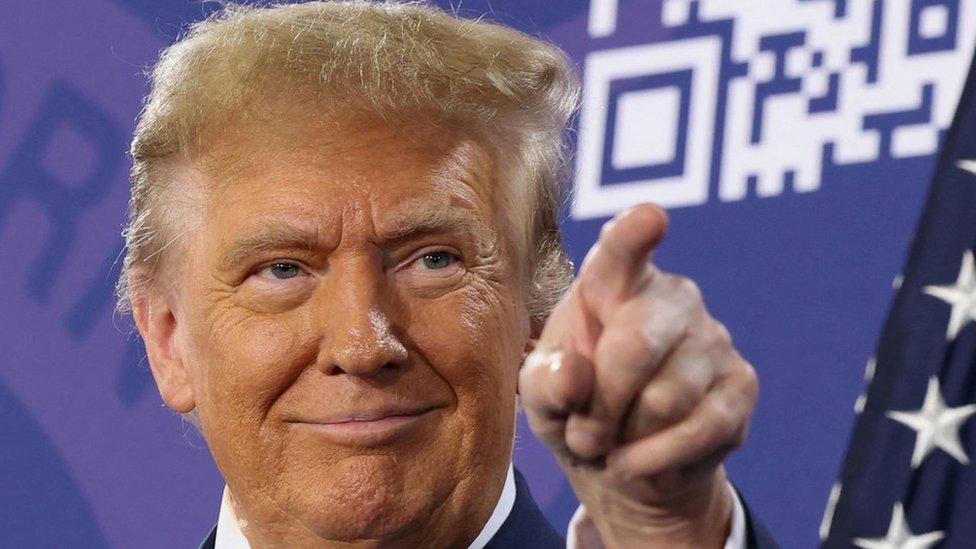
- Published20 May 2019
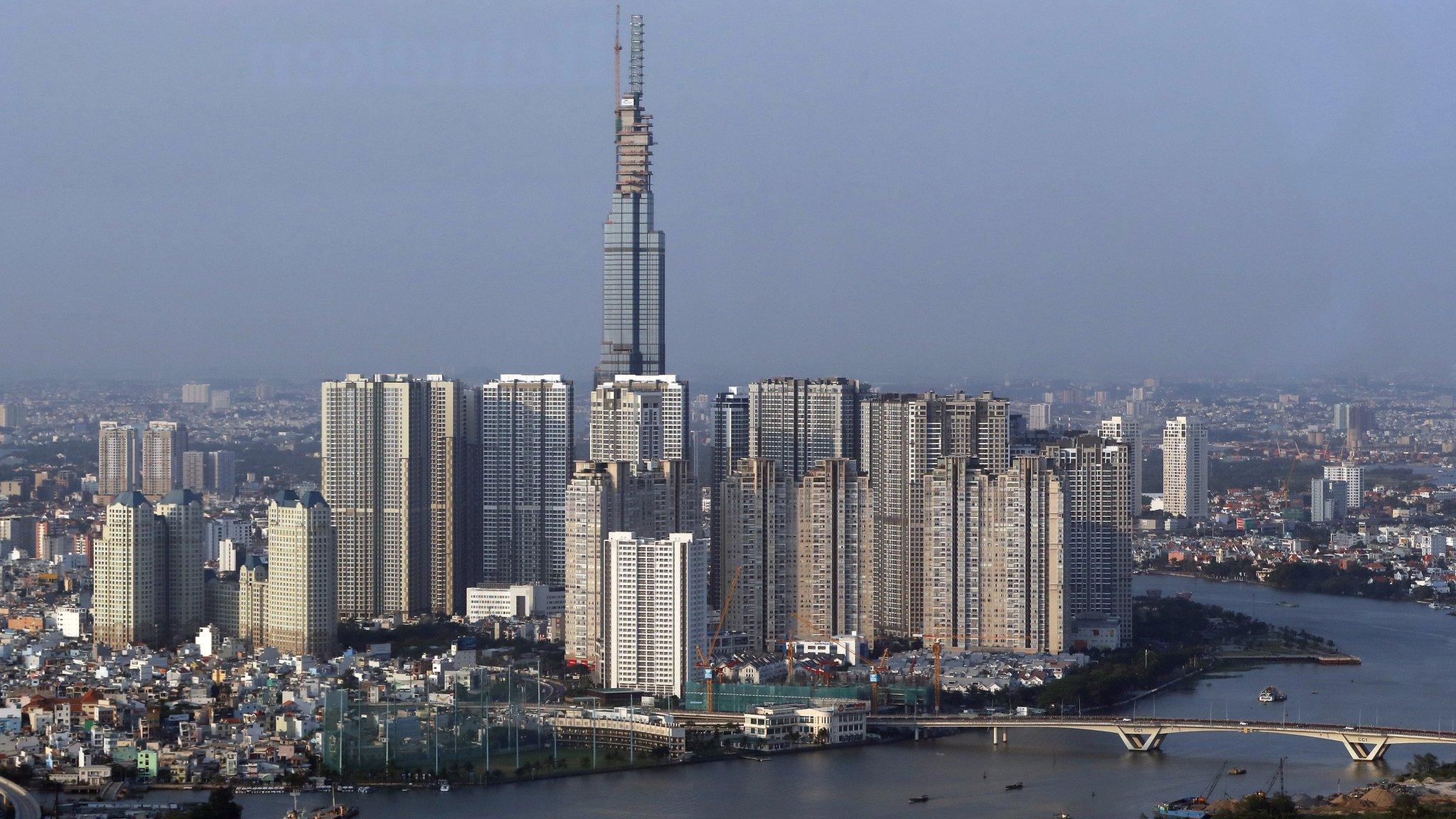
- Published16 December 2015
